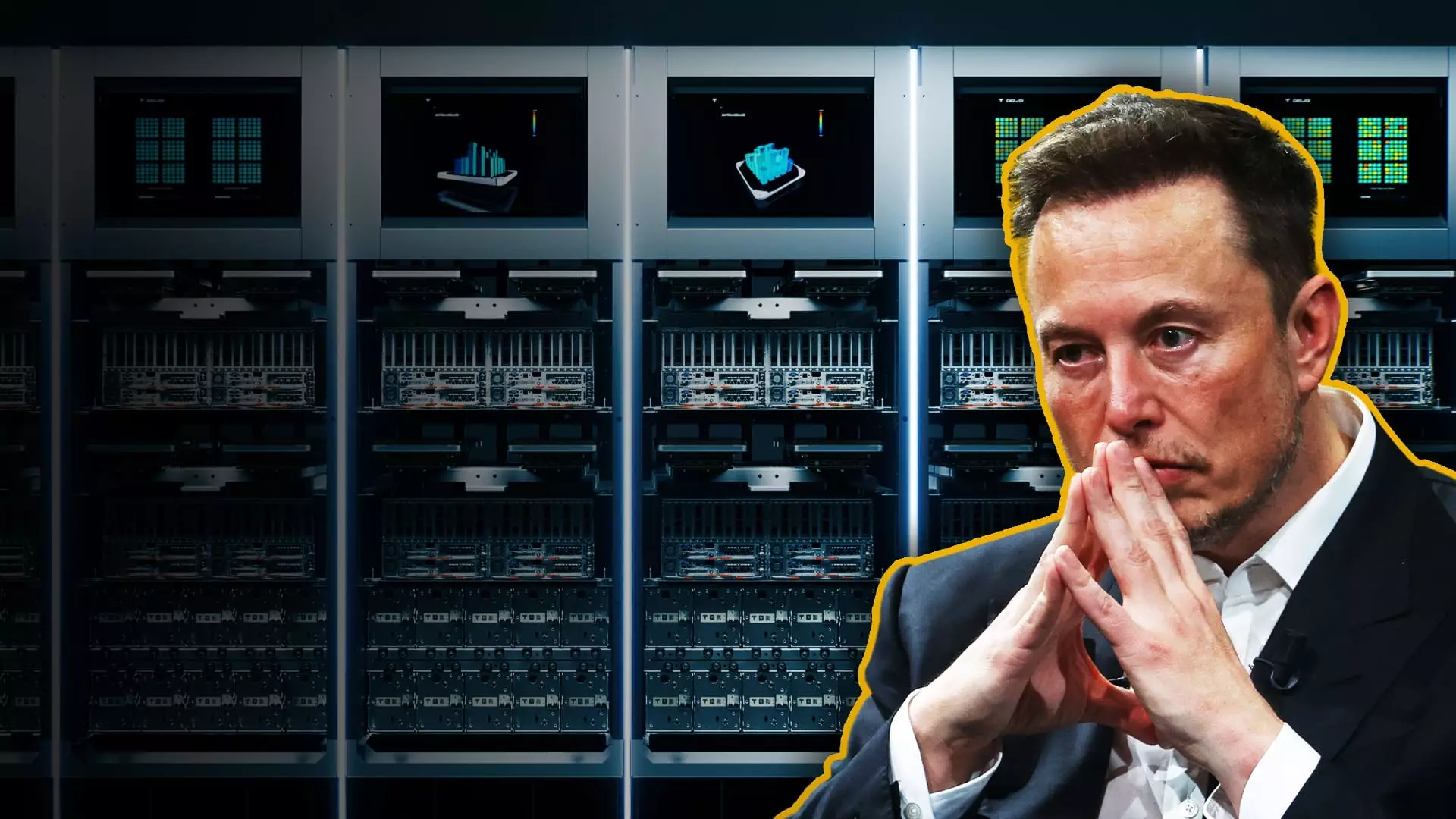Elon Musk, a name synonymous with innovation and disruption, is steering the technological landscape toward a transformative future with his latest endeavors in artificial intelligence (AI). Not only the CEO of Tesla, but also at the helm of his newly established AI startup, xAI, Musk is pursuing an audacious vision that extends far beyond mere automotive advancements. His intent is clear: to design and deploy supercomputers that can redefine the capabilities of AI across his various companies while also pushing the boundaries of what technology can achieve.
Musk’s assertion that Tesla should be perceived as an AI/robotics company rather than just a traditional car manufacturer represents a fundamental shift in perspective. This rebranding involves a strategic pivot towards integrating advanced AI technologies into Tesla’s operations. Central to this ambition is Dojo, Tesla’s bespoke supercomputer being constructed in Buffalo, New York, with an impressive budget of $500 million. Dojo is not just an acquisition; it’s a cornerstone of Musk’s broader strategy to leverage AI for enhancing Tesla’s features, including its Autopilot and Full Self-Driving (FSD) systems.
The significance of these technologies can’t be overstated. With over five million Tesla vehicles on the road, each equipped with multiple cameras, the data generated is immense. Tesla’s capability to collect vast amounts of real-time video footage from these vehicles forms a rich reservoir of information. By employing Dojo to process this data, Tesla hopes to refine its driver assistance technologies continually. However, Musk must address concerns surrounding the marketing of these systems. While they offer increasing levels of automation, they still require active driver supervision and do not render vehicles fully autonomous.
The push for full autonomy is not just a technical goal; it is vital for Tesla’s valuation in the eyes of investors. Analysts assert that the company’s stock price heavily depends on its ability to deploy robotaxis, which could revolutionize urban mobility. Yet, Tesla’s latest earnings report underscored a sobering reality: the automaker is lagging behind key competitors in the realm of autonomous vehicles. Rivals such as Waymo, Cruise (backed by GM), and Amazon’s Zoox have made significant strides, operating fully autonomous taxis within various U.S. cities. In this competitive landscape, Tesla’s promise of autonomy must rapidly transition from ambition to reality, or risk losing investor confidence in its long-term viability.
The anticipated capabilities of Dojo extend beyond just vehicular applications. Musk envisions its utility in other groundbreaking projects, such as the humanoid robot named Optimus. Set to be deployed in Tesla’s factories as early as next year, Optimus reflects Musk’s multifaceted approach to robotics and AI. The integration of Dojo into the developmental processes of robots signifies Musk’s commitment to furthering innovation in both manufacturing and service sectors.
Moreover, Musk’s investment in AI goes beyond Tesla. His startup xAI, which he launched to develop large language models as alternatives to existing tools by industry giants, also emphasizes his ambition. The establishment of a supercomputer in Memphis, Tennessee, named Colossus, to power xAI demonstrates Musk’s belief in the potential of AI systems to create significant commercial value. The rollout of Grok, xAI’s chatbot, underscores Musk’s vision of diversifying AI applications across different platforms.
Despite Musk’s intricate plans and ambitious projects, a critical view of his approach reveals some challenges. The secrecy often surrounding his initiatives can lead to skepticism among stakeholders and the public. Furthermore, the challenge of maintaining ethical standards in AI development, particularly in the face of rapid advancements, cannot be overlooked. Musk’s outsized influence in the space emphasizes the need for responsible governance as these technologies evolve.
As he embarks on these extensive projects, the success of Musk’s supercomputers will heavily rely not only on technological innovation but also on navigating regulatory landscapes and market expectations. It remains to be seen if the colossal aspirations of Elon Musk will transform the industries he influences or merely serve as another chapter in his storied career.

Leave a Reply